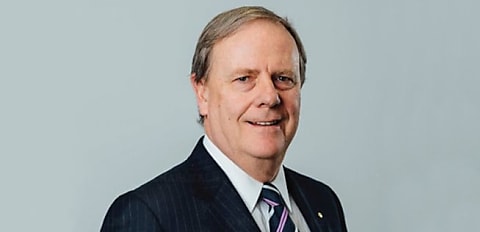Former treasurer (and Australia’s longest-serving treasurer) Peter Costello has warned against creating two new boards at the Reserve Bank of Australia (RBA) – a key recommendation of the RBA review – suggesting that the move would only lead to conflict at the central bank.
As per the RBA review, the move aims to create two separate boards at the RBA. One would be for monetary policy (consisting of the RBA governor [who would also be chair], deputy governor, Treasury secretary, and six external members) and one would be in charge of governance and oversight of RBA management.
New legislation, the Treasury Laws Amendment (Reserve Bank Reforms) Bill 2023, was introduced in Parliament in November 2023 to put these changes in motion.
The bill has been referred to the Senate economics legislation committee for inquiry and report by 21 March 2024.
Appearing at a Senate economics committee hearing on Thursday (22 February), Mr Costello termed the proposal to split the board into two separate boards a “bureaucratic” solution.
“There’s sort of a suggestion in there that if our monetary policy board isn’t weighed down with looking at how the bank actually functions, it can focus better and it’ll be able to do a better job,” Mr Costello said.
“Let me make this point, the Reserve Bank is a very focused institution. Back in 1996, we took banking supervision out of it. It’s not like the Fed, it’s not like the Bank of England – it doesn’t do banking supervision. It’s focused on monetary policy [and] it’s already a very focused institution.”
According to the former treasurer: “[I]f you take out of it the responsibility to manage administrative affairs, I don’t really know what the board will be doing most of the time.
“It’s not an onerous job, it’s a once-a-month meeting, and the idea that the board has to do some administration as well, and therefore might lose its focus, I think is nonsense – it might be good for the board to do some administration frankly.”
Moreover, he argued that the separation of duties could give rise to disputes, adding that it’s not likely to improve governance within the Reserve Bank.
He laid out concerns that conflict could rise between the two boards due to the fact that monetary policy influences the board’s balance sheet and argued that it was not clear who would resolve any differences that occurred between the two boards.
Mr Costello explained: “If one manages monetary policy and the other board manages the balance sheet, you’ve got to understand, the monetary policy is going to determine the balance sheet. And whose responsibility is it going to be where there’s a difference between the two boards?
“It’s all very well to say you’ll have two boards instead of one, but once you’ve got two boards, you’ve got to carefully define the powers of each [and] what will happen in the event of disagreements between them, and you’ll have many more people to deal with and to accommodate.”
In his criticism, he highlighted a point made by former RBA governor Ian Macfarlane at the Senate hearing, in which the latter said the recommendation worked “only in theory”.
“If this was such a good idea in theory, we should be doing it at every agency – we should be doing it at ASIC, we should be doing it at the Future Fund, for example,” said Mr Costello.
“It sounds good in theory, but it’s not like these boards are overworked, I can tell you.”
Looking at the wider review, he suggested that accountability should remain a key priority for the Reserve Bank and that increased scrutiny into its workings is needed.
“Now whether that’s done through the Parliament committees, whether that’s done through the press, I think particularly with what I regard as a failure during the unconventional monetary policy [of the COVID-19 pandemic], I think there should have been more scrutiny,” Mr Costello said.
“You can’t remove people from scrutiny when they exercise such important power.”
On the topic of accountability, he also raised concerns around the possibility that RBA board members could be asked to discuss monetary policy decisions externally.
Namely, the review recommended that the RBA governor should hold a press conference after each decision meeting to explain the board’s views and that external monetary policy board members should give at least one public speech a year. The first press conference was held earlier this month following the first 2024 rate decision.
The former treasurer explained that such a suggestion was based on the US Federal Reserve, which, unlike the RBA, is an association of numerous banks across different states.
With regard to the RBA, Mr Costello noted the board members would be part-timers, as per the review’s suggestions.
“They may be economists, they may not. You’re going to ask them to give speeches on where monetary policy is going, I think it’s going to make the governor’s life a lot harder, and it runs the risk of actually misinforming the market rather than making things clear. I don’t think it’s going to lead to any better decision making, frankly,” he asserted.
The review also included a move to eight board meetings a year instead of 11, which has been implemented as of February 2024, “to allow for more time to make better monetary policy decisions.”
[Related: RBA to have 2 boards as part of major shake-up]

